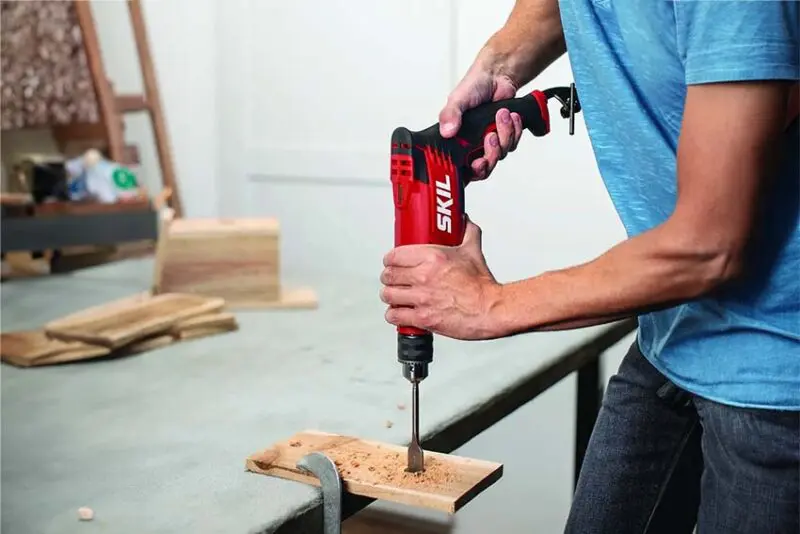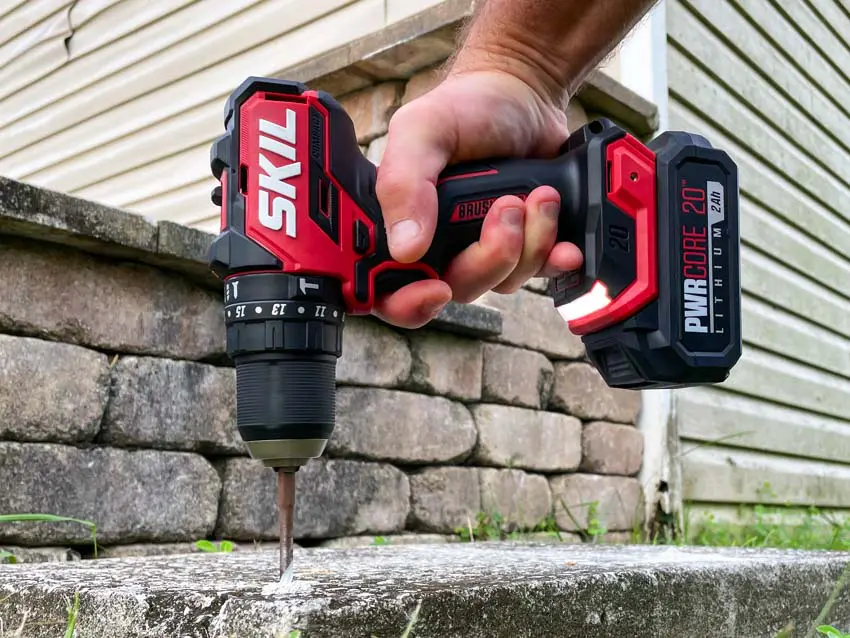Cordless drills are so prevalent in our world today that you might take for granted that there are still some corded models available. Lest we forget where we came from, and for those debating which road to take, we’re taking a closer look at the cordless vs corded drill conversation.
Need a recommendation? Check out our best cordless drill picks for the year!
Cordless Vs Corded Drill Considerations
As we consider cordless vs corded drills, we’re going to dig into three key areas. Performance, convenience, and cost aren’t the only things that come into the conversation, but tend to be the most important topics.
Performance

When cordless drills became popular in the Ni-Cad battery age, the performance between corded and cordless models were similar and perhaps in favor of corded models on the high end. However, cordless drills were using batteries with a “memory” that degraded over time and performance that had a significant drop-off on the back half of the battery’s capacity.
With lithium-ion batteries, those issues are no longer a concern (unless you’re still using Ni-Cad tools). Batteries have a usable life that we expect to last at least 3 years and can often last more than 5 years with proper care.
More importantly, the performance of cordless drill can easily exceed corded models. Brushless motors improve the performance, runtime, and life of the tool. Brushless drills often have higher torque than corded. Plus, the electronics required to run brushless motors open up the possibility of features such as kickback control, electronic controls, and even customizable smart controls.

That said, corded drills can have much higher top speeds than cordless models. Especially when it comes to concrete drilling with a hammer drill, it can make a big difference in your productivity.

Performance still boils down to speed and torque, though. If you’re debating between a cordless drill vs a corded one, those numbers will tell you how they compare.
Convenience

Convenience sounds like it should be an easy win for cordless drills, and it is. But it’s more than the convenience of not dragging a cord around. As we mentioned above, there are features cordless drills have that corded don’t.
There’s even more to it, though. Cordless drills tend to have a more refined physical design with ergonomics that better in your hand.
They’re also lighter weight than their corded counterparts, even when you’re using a battery. With corded models generally running 4.5 to 5.5 pounds, flagship cordless drills can be a pound less.
Before we finish singing battery power’s praises, there’s one more thing. As you’re shipping, notice the large number of cordless drill options you have from most brands. Sure, you have the Pro-grade models with enough torque to reverse the spin of the earth. There are mid-size and compact models as well. Some of the cordless drills are compact enough to get into spaces that no corded drill would dream of with lighter weights that drastically reduce your fatigue over the course of a project.
Cost

Cost is where corded drills continue to rule the day. It’s possible to get a high-quality DIY drill for less than $50, and even Pro-grade corded models are well under $150. In contrast, good cordless drills start around $50 and can run more than $300 depending on what batteries come with it.
There’s also the cost of ownership to consider. Corded drills can continue working for years and might only need a change of brushes from time to time. Cordless drills can have a similar lifespan, but the batteries will need replacing. A $15 set of brushes is much less expensive than a $100 battery.
Another thing to consider is the number of other tools and products that work with the same batteries. Several popular systems have well over 200 products that are compatible with the same packs. If you already have the batteries you need, the cost of a bare tool is often comparable to that of a corded version.
The Bottom Line
Weighing cordless vs corded drills, it’s clear that battery power has significant advantages in performance, features, design, and convenience. Even though some of those drills have an affordable price tag, corded drills as a group tend to cost less, especially for Pro-grade models.
Like the drills we used in our photos?
The cordless model is the Skil PWRCore 20 Brushless Compact Hammer Drill. It’s $129 as a kit with a 4.0Ah battery and charger on Amazon.
The corded model is Skil’s 7.5Ah drill and it’s $49.95 on Amazon.



